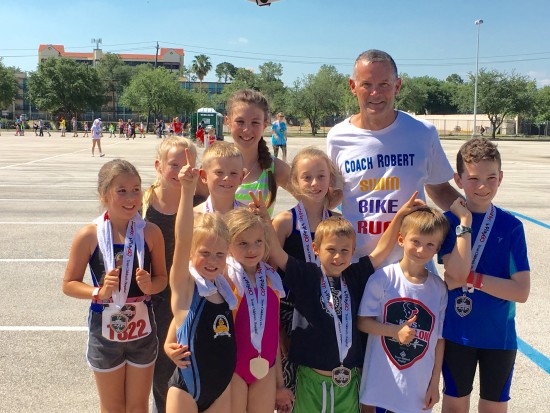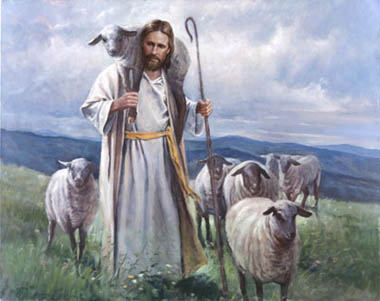Going the Distance: On Heartbreak, Hope, and Love
My kids, ages 8 and 9 1/2, were registered to do their third Kids-Triathlon.

First Tri in 2014

Second Tri in 2015
And then three weeks before the race this year, my youngest, Max, broke his arm (for the second time in 8 months–this time while playing the-floor-is-lava).
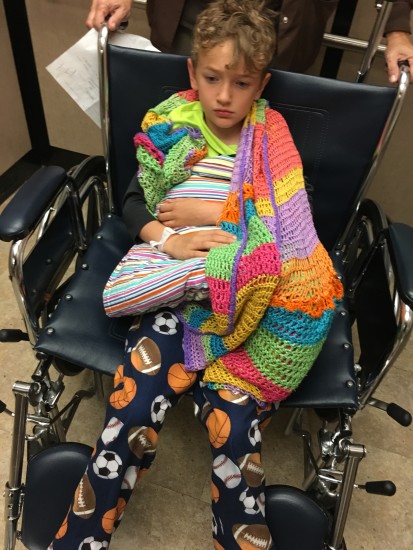
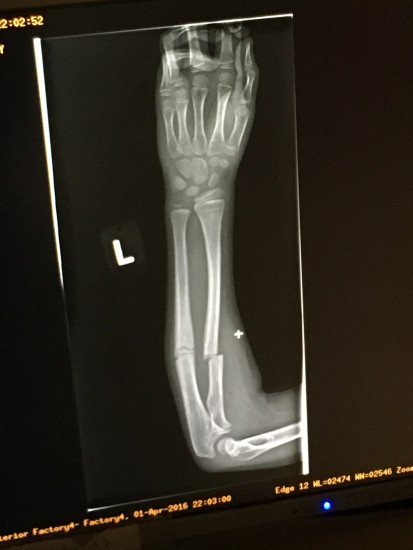
He was disappointed that he couldn’t do the tri, but understood. There were tears, but Max has a positive, fun, jovial disposition. While others might sulk, he had a moment of sad, then moved on to joking and cheering… until the night before the race, when he started to cry. Overcome with disappointment, he cried, “I weally wanted to do this twiathlon…”
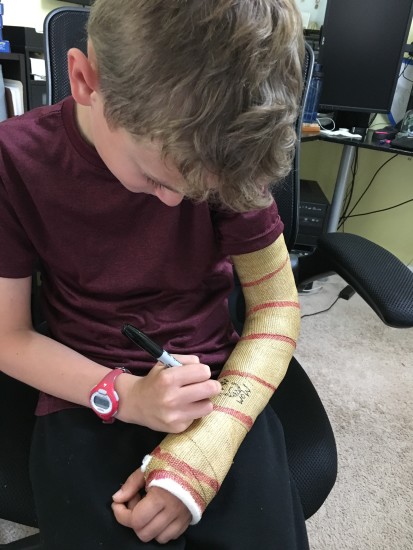
I had a choice: I could tell him to simply chin-up and deal with the consequences of his broken arm, I could join him in his devastation and call off his brother’s tri, or I could meet him with compassion and find a way to help him work through it.
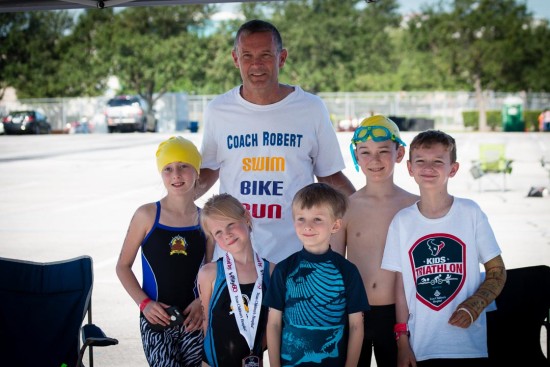
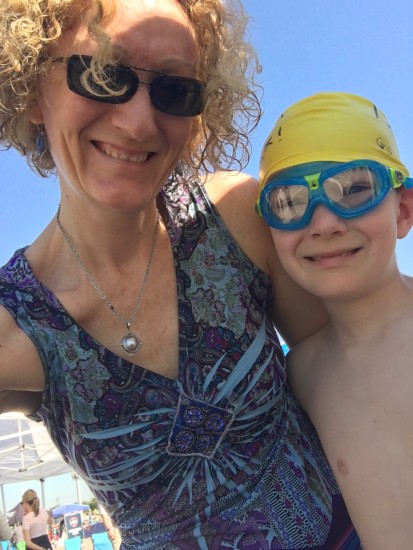
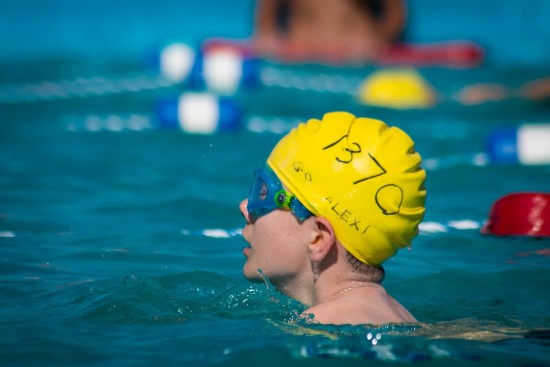
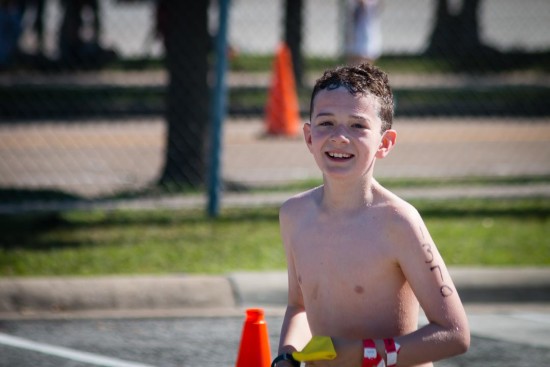
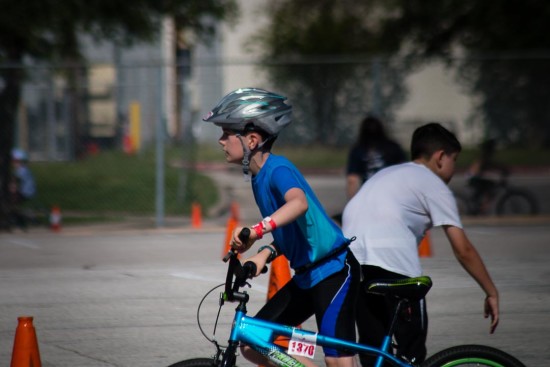
And we eagerly waited his return…
After a while I knew something was wrong; it was taking too long.
Finally Max spotted him off in the distance.
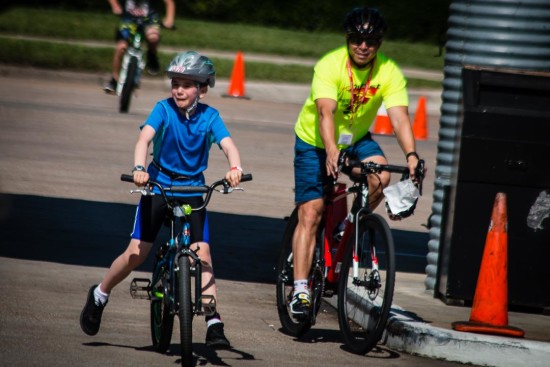
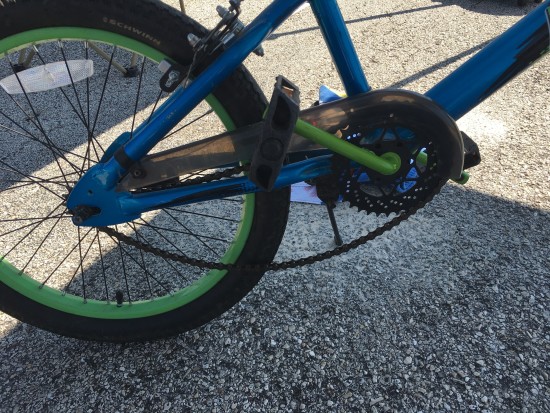
Crying, he ran his bike through the end of the course, into transition.
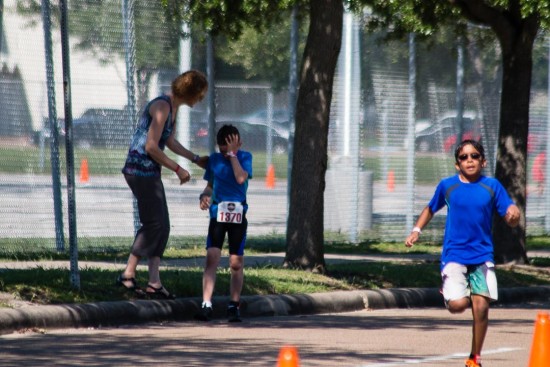
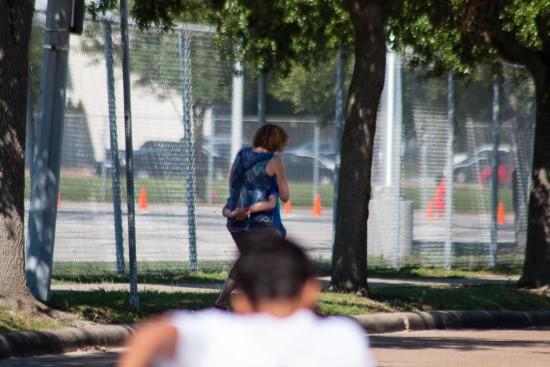
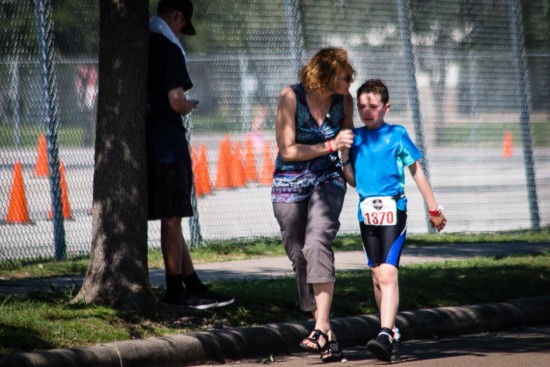
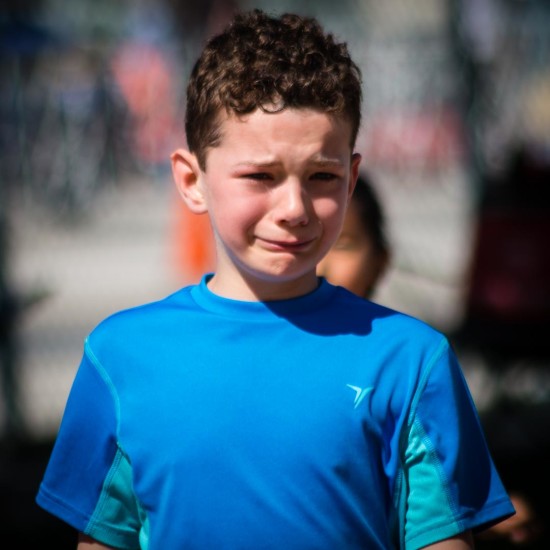
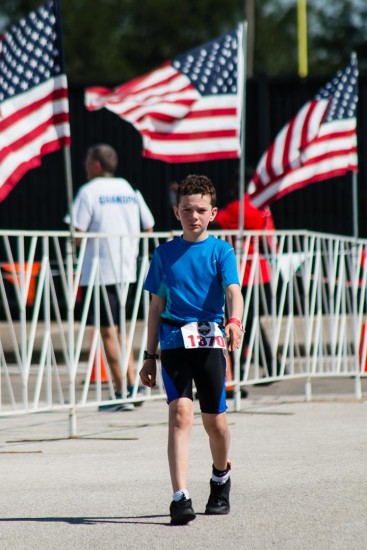
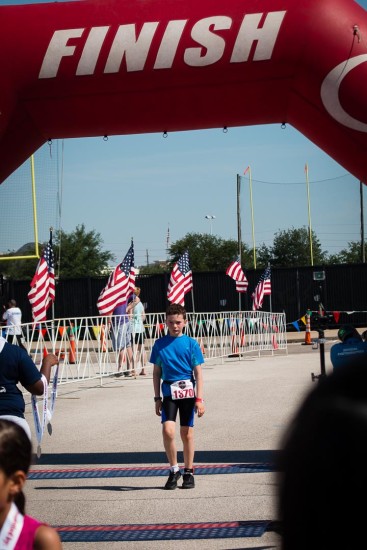
So I took him by the hand and walked him over to his coach. A multiple Ironman, multiple ultra-marathon (100 mile) finisher, who coached kids at the YMCA for free, just to share his love of the sport. A grandfather, who loves kids as much as he loves the sport… who is one of the best examples of coaching that this professional educator has ever witnessed in her life.
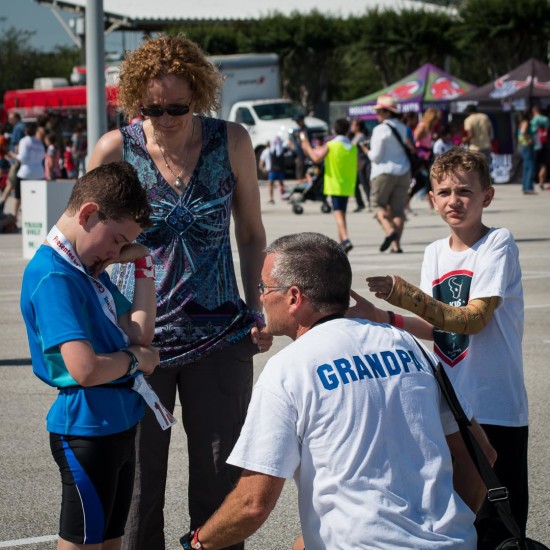
And this Ironman Coach Grandpa explains to Alex that his determination to finish–that he didn’t just give up–was one of the most inspirational things he had ever seen.
Still, Alex couldn’t understand. Still, Alex couldn’t comprehend. So Coach Grandpa asked if he could take a picture and post his story on Facebook. Because he was certain that there were other Triathletes that would find inspiration from this 9 year old.
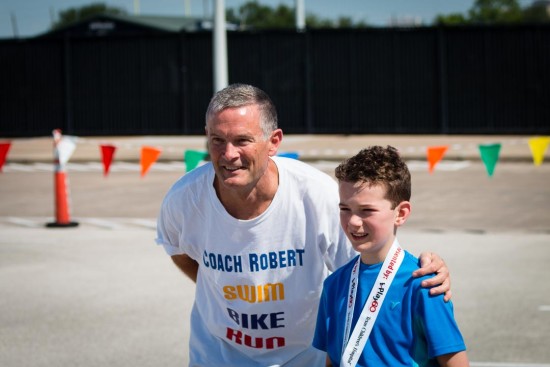
We packed up and headed home. And I insisted that Alex read the comments on Coach Grandpa and my own Facebook posts. For some reason, when he started to read the comments of strangers who were moved by the fact that he still finished the race, things started to shift for him. “Wow.”
Why is it that we doubt the words of those who love us, but accept the words of those we don’t know?
Regardless, those words were heard. The affirmations of strangers were heard. The encouragement of his Coach was heard. And Alex started to look at his Triathlon in a new light.
Where he once saw failure, he started to see determination.
Where he once saw frustration, he started to see success.
And I finally let myself cry, but not for hurt, or pain, or disappointment. Rather for pride.
What may have been my son’s worst experience ever may have been the proudest Mom-moment of my life.
Because he finished.
Not because he won, but because he didn’t give up. He finished.
My son faced adversity, felt the full brunt of it, and said to himself, “I could quit, but it’s only another 1/2 mile. I can make it.”
And he did. He finished.
There are so many lessons I take from this experience.
- From Max who at 8 years old allowed himself to feel intense disappointment, yet didn’t let it consume him… rather, he chose to cheer on his friends.
- From Alex, my tenacious 9 1/2 year old, who didn’t give up.
- From perfect strangers who not only found inspiration from Alex’s story, but who took the time to applaud his tenacity.
- From a man who volunteers his time, talent, and treasure to help kids find success with and develop a love of his sport.
- From my husband who sees the moments of real, in-the-trenches-mothering, applauds them, and captures them on film.
When Jesus said to love one another as I have loved you… this is what he meant. Yes, my kid did a great job at overcoming adversity, but he wouldn’t have been able to do it without you and me. When Jesus said “whatever you do to the least of my brothers and sisters, you do to me,” this is part of that.
As a Mom, when I love my kid in his time of need, I’m being Christ to him. As a community, when you reach out to someone with encouragement and love, you’re being Christ to him. You are loving one another as Christ loved us.
This is it. Right here, right now. And we did it. He finished. And he’s proud because of you. So thank you.
